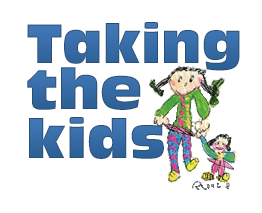Online homeschooling and online high school programs provide a unique opportunity to integrate real-world experiences into a child’s education. One of the most enriching and educational experiences you can provide is travel. Not only does it break the monotony of traditional learning, but it also opens up a world of hands-on learning opportunities. In this post, we’ll explore how you can turn travel into an educational journey for your homeschool family.
Embracing the World as Your Classroom
The Value of Experiential Learning
Travel provides an unmatched form of experiential learning. When children are exposed to new places, cultures, and environments, they gain knowledge that is difficult to impart within the confines of four walls. Each destination has its unique history, geography, culture, and language, offering a rich tapestry for learning.
Integrating Curriculum with Destinations
When planning your travels, consider how each destination can tie into your child’s curriculum. For instance, a trip to Rome can bring lessons about the Roman Empire to life, while a visit to a national park can enhance a science module on ecosystems.

How to Turn Travel into Teachable Moments
Geography and History
Traveling to different regions and countries allows children to understand geography in a tangible way. They can learn about different landscapes, climates, and how geography has shaped cultures and history.
Language & Cultural Studies
There’s no better way to learn a language than to be immersed in it. Likewise, experiencing different cultures fosters global awareness and empathy in children.
Science and Nature
Use natural landmarks, local flora and fauna, and science museums as tools for teaching biology, environmental science, and physics.
- National parks for ecology and geology lessons.
- Aquariums and zoos for biology.
- Science museums for hands-on physics and chemistry experiences.
Art and Music
Expose your children to the arts by visiting galleries, attending musical performances, and observing local crafts and traditions.

Planning Your Educational Travel
Research and Preparation
Before you travel, research your destination. Look for educational tours, museums, historical sites, and nature reserves. Prepare your children by reading about the destination and discussing what you will see and learn.
Flexibility in Learning
While it’s great to have an educational plan, remember to be flexible. Sometimes the most memorable learning experiences are unplanned.
Documenting the Journey
Encourage your children to keep a travel journal. This can include drawings, stories, and observations, serving as a valuable record of their learning.
Real-Life Skills Gained from Travel
1. Independence and Decision Making
Travel challenges children to step out of their comfort zones, make decisions, and become more independent.
2. Social Skills and Communication
Interacting with diverse groups of people can enhance social skills. Children learn to communicate more effectively and respect cultural differences.
3. Adaptability and Problem Solving
Travel often involves unexpected situations, teaching children to be adaptable and develop problem-solving skills.
Overcoming Challenges
Budgeting for Travel
Travel can be expensive, but there are ways to make it more affordable. Consider off-season travel, renting apartments instead of hotels, and looking for educational discounts.
Balancing Travel and Schoolwork
Create a flexible schedule that allows for both structured learning and exploration. Use travel days for lighter educational activities like reading or journaling.
- Start Small: Plan a short educational trip to a nearby historical site or natural reserve.
- Get Involved: Join local support groups or online homeschool forums to share experiences and get ideas.
- Be Creative: Think outside the box. Every destination has something to teach.

Conclusion
Travel can be one of the most rewarding and educational experiences for a homeschool family, but its benefits extend far beyond academic learning. It’s an adventure that brings endless joy, excitement, and a sense of wonder to both parents and children. Imagine the thrill of seeing your child’s eyes light up as they see the Colosseum for the first time, or their awe at witnessing a sunset over the Grand Canyon. These are moments that textbooks simply cannot replicate.
So, while the educational benefits of travel are immense, let’s not forget the sheer fun and excitement it brings. Every trip is an opportunity to break away from routine, to laugh, to explore, and to create stories that your family will reminisce about for years to come. So pack your bags, embrace the spirit of adventure, and let the world be your classroom and your playground. Let the journey of learning and joyous discovery begin!
